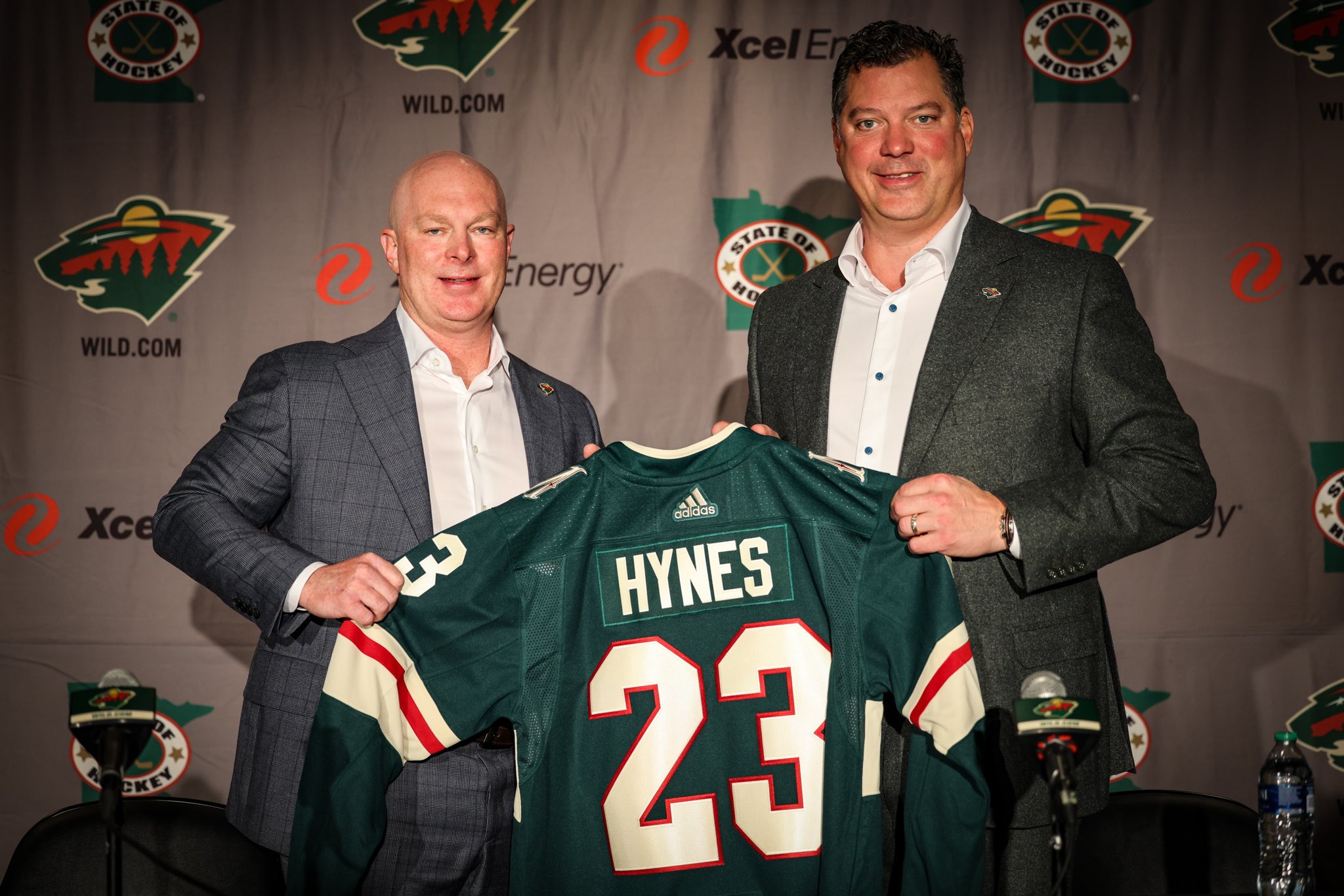
When NHL teams change coaches, they usually try to hire someone drastically different from the person they just fired. First-time head coach Dean Evason stepped in for Bruce Boudreau, who commanded an NHL bench almost uninterrupted for 13 years. A 62-year-old Boudreau replaced Mike Yeo, a first-time coach who assumed the gig at age 38.
Now, Evason's out as the Minnesota Wild's bench boss. Who's his replacement? You guessed it: Evason's opposite. Specifically, John Hynes, who's already coached two teams and has 602 games of head coaching experience. It's the circle of life.
The good news for going the veteran (or recycled, depending on how charitable you're feeling) coach is that fans can get some idea of what they should expect. Even though he'd spent time as an assistant with the Wild, no one knew for sure what they were getting with Evason. Would he try to juice the offense with Kevin Fiala, his longtime protege? Would he continue in the Jacques Lemaire/Yeo/Boudreau mold of defensive coaching? We had no idea.
But that's not true of Hynes. However, that's kind of where the bad news comes in: Hynes' history as a coach is uninspiring.
There are the raw results, of course. He spent parts of five seasons with the New Jersey Devils, racking up a losing record (150-159-45; .487 points percentage), followed immediately by parts of four seasons with the Nashville Predators. He fared better in Nashville, with a 134-96-18 record (.577 points percentage). Immediately, we can see that both his points percentage in New Jersey and Nashville trail Dean Evason's .639 points percentage with the Wild.
Maybe the change goes deeper than regular-season accomplishments, though. Hynes provides a different voice, and he'll undoubtedly have his own systems and ideas to implement in St. Paul. Guerin has a history with Hynes going back to their days in the Pittsburgh Penguins organization. He must be banking that Hynes' philosophy can spark his team.
The problem there is that Hynes' systems don't particularly lead to sustainable success at 5-on-5 play. Thanks to Evolving-Hockey, we can track the rolling 10-game averages of Hynes' teams throughout the years. In our case, we'll look at expected goals, and there are very few periods during his time in New Jersey where his teams consistently got the better of play.
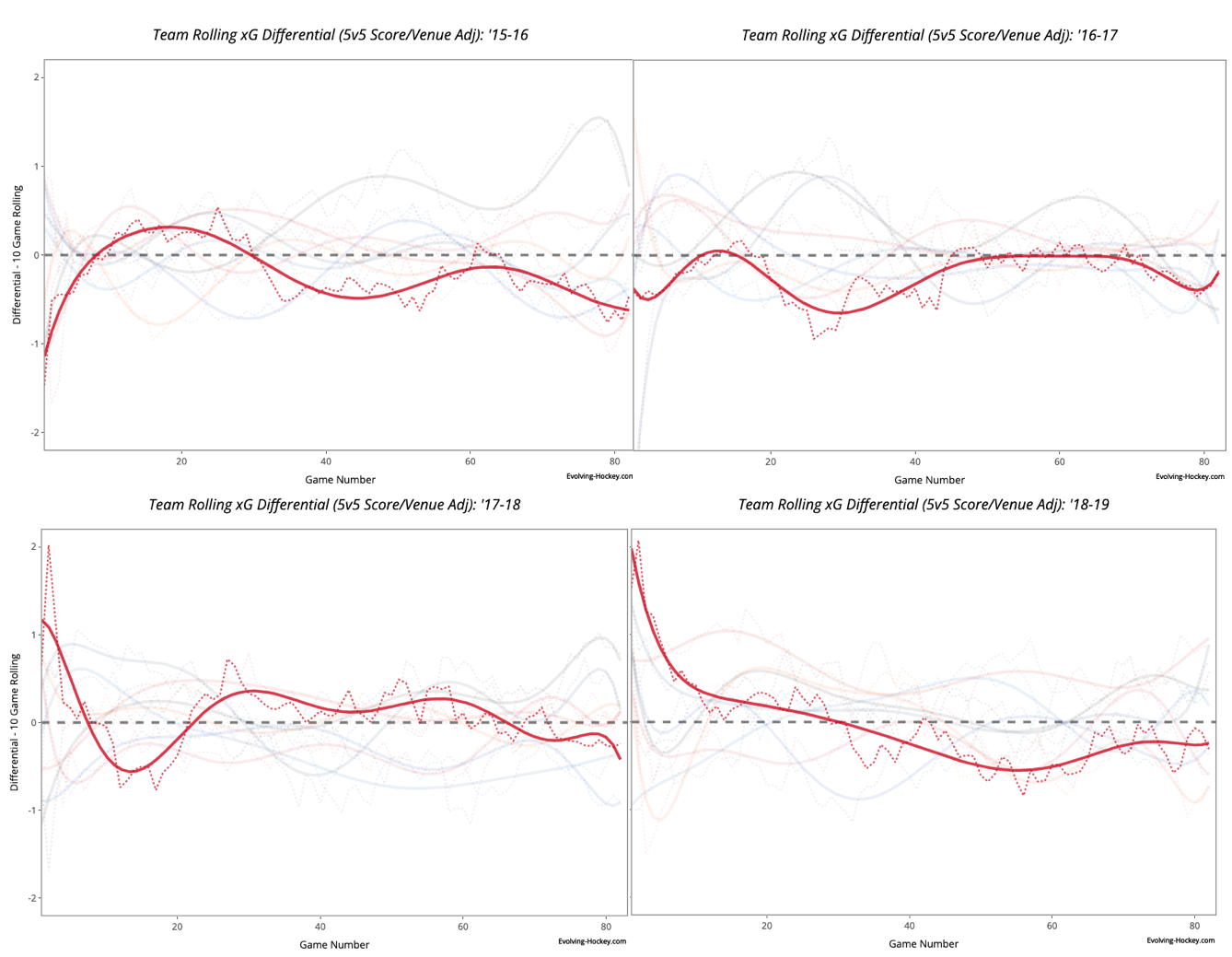
We can sum up his three periods of success as:
1) A run from about Games 10-30 of the 2015-16 season, his first with the team.
2) A sustained period of above-averageness from around Games 25-65 of 2017-18, his only playoff season with the Devils.
3) A hot first 30 games of the 2019-20 season that was already fading by the time MVP Taylor Hall's season-ending injury hit in Game 33.
The Devils were rarely dominant at 5-on-5, and in three of their four full seasons, they trended downward as the season went on. But that was with a rebuilding team. What about with a veteran group in Nashville?
Uh-oh.
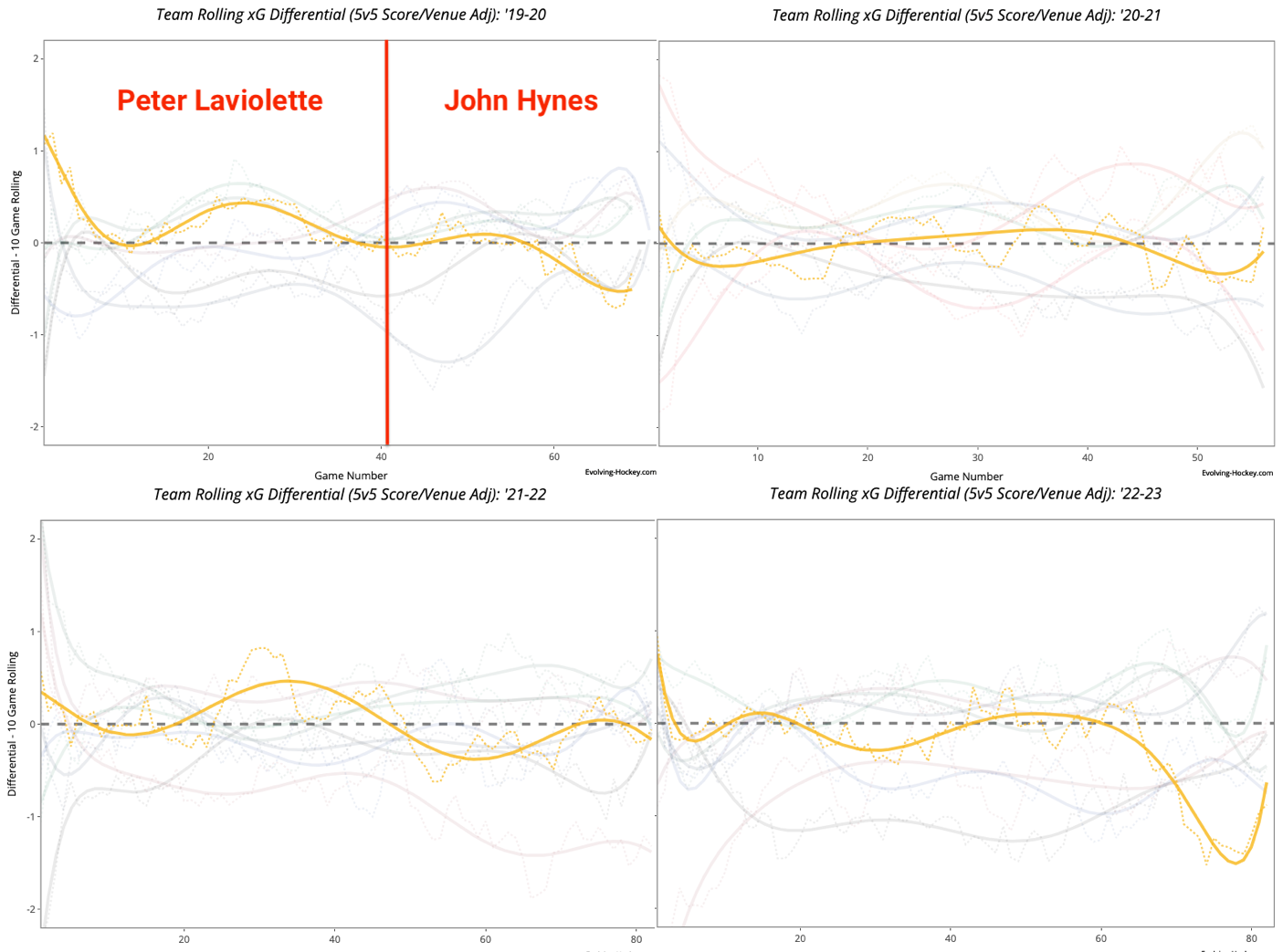
Hynes took over behind the Predators' bench and couldn't bring them to anything more than a short stretch of average 5-on-5 play. That trend continued throughout nearly all of his tenure in Nashville, save for a 25-game or so stretch of relative dominance in the 2021-22 season. Well, that and his final 20 games in Nashville, where it looks like his team quit playing for him.
So if Hynes' teams can't get the better of play at 5-on-5, then what do they do well? Say it with me: Low-Event Hockey. Like Lemaire and Yeo before him, Hynes is deeply dedicated to the dark art of making sure nothing really happens on the ice.
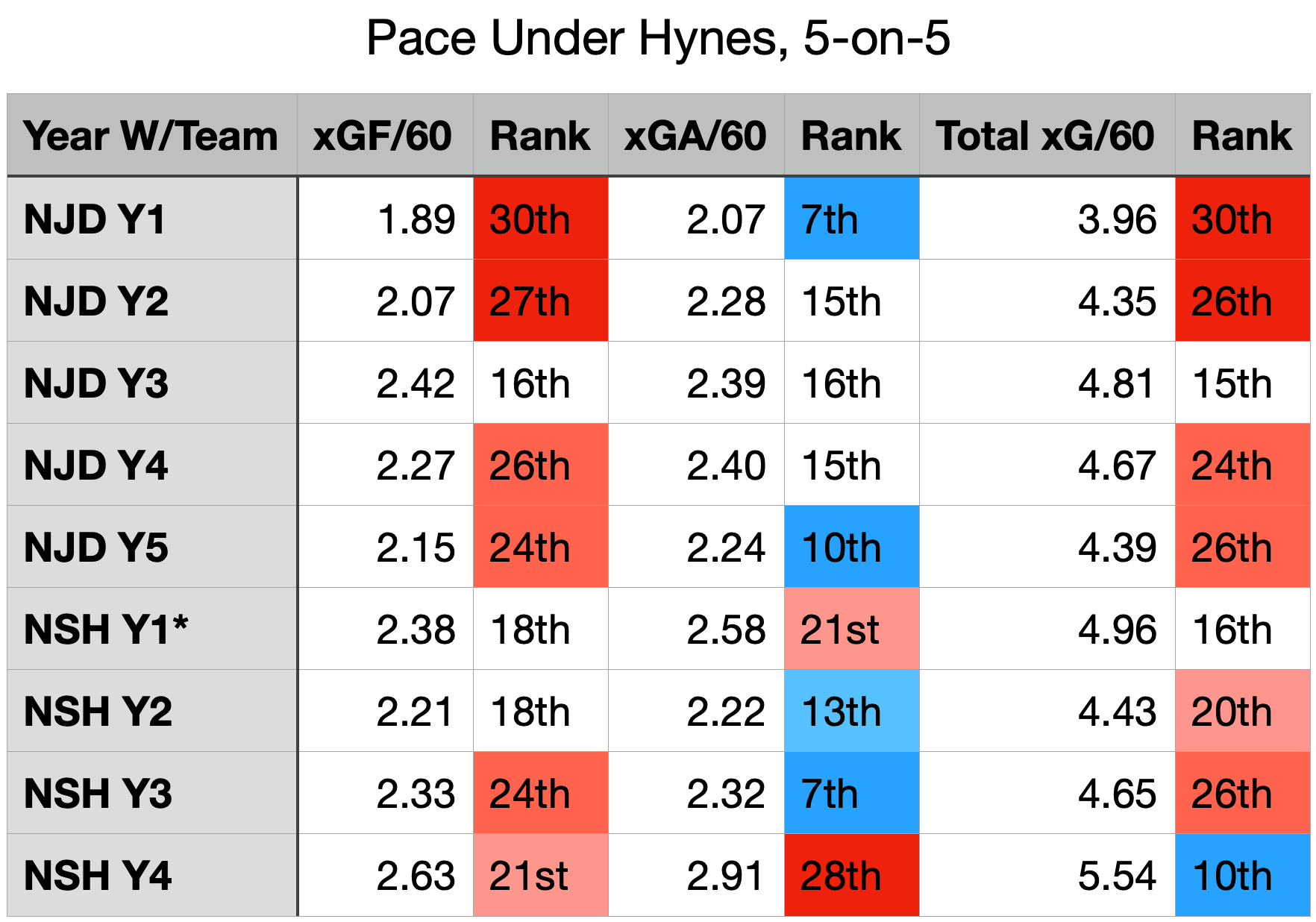
Hynes' teams never made it out of the bottom half in terms of exerting offensive pressure, but that was often matched by rarely falling into the NHL's bottom half in limiting scoring chances. As a result, Hynes' Devils and Predators were often among the most boring teams in the NHL. The only exceptions were Hall's Sicko Mode Hart Trophy year, Hynes' first partial season in 2019-10, before he could fully install his system, and last year. The pace was kind of interesting to watch, maybe, but only because the defense fell off dramatically.
As tough as it is to watch, there's a reason why some coaches commit to Low Event Hockey. If you're out-gunned in the talent department, which Hynes' Devils always and his Predators often were, you can't get into a high-pace match against the opponent. The solution? Grind down the pace and the opportunities for goals so that special teams, goaltending, or favorable bounces can be the difference-makers.
There are a few problems with that strategy as it pertains to the Wild. The first is that it's not a dramatic change from Minnesota's identity under Evason. Since the team traded Fiala to the Los Angeles Kings, the Wild have 2.3 goals per hour at 5-on-5, the fifth-worst in the NHL. They don't need anyone to come in and say, "Score fewer goals and defend harder." They need someone who can unlock their stars offensively.
This includes special teams, an area where Hynes isn't much of a guru. He oversaw middle-of-the-pack power plays over his four full years in New Jersey and his three full seasons in Nashville. While his penalty kill with the Devils was strong, his Predators were 18th in the NHL in surrendering shorthanded goals (7.47 per hour) and 24th at giving up expected goals on the kill (8.09 per hour).
All of that leads to the biggest problem with superimposing Hynes' tendencies onto the Wild: His systems need goaltending to work. In Nashville, Hynes showed that you don't need to out-chance opponents at 5-on-5 or get particularly good special teams if you have the second-best goaltending at 5-on-5. It turns out that Juuse Saros solves a lot of problems. And unless Hynes can tell Filip Gustavsson to return to doing what he did last year, it's hard to see that formula playing out well in St. Paul.
In many ways, this coaching change feels like not just a downgrade from Evason but one that doesn't even really change things up for the Wild. Worse yet, Evason not only out-paces Hynes in regular season success but, remarkably, playoff success as well. Say that again: Evason, who hasn't won a playoff round in the NHL or AHL, has a more robust track record in the postseason than Hynes.
Evason's Wild have generally been a tough out in the playoffs, taking their series to seven, then six, then six games starting in 2020-21. It still amounts to an 8-15 record, but there's at least been some ability to punch. Hynes' postseason record is 1-4 for his time with the Devils, then 3-11 in Nashville (4-15 overall). Ultimately, it doesn't really matter if you take a series to five or seven games if you lose, but Hynes hasn't shown any ability to get his teams further than Evason.
That might be explainable for a rebuilding New Jersey team. But the excuses crumble away with a veteran Nashville squad whose blueline featured Roman Josi, who twice won the Norris Trophy under his watch, including a 23-goal, 96-point season as a defenseman, with Mattias Ekholm as a defensive counterpart. Filip Forsberg scored 35 goals per 82 games under Hynes, with Matt Duchene, Ryan Johansen, Mikael Granlund, and Thomas Novak also having productive years. Throw in Saros to tie all that together.
What's there to make Minnesota think that Hynes can take a similarly built team that also hasn't been able to break out of the first round to the successful run they're hoping for? It's hard to say. Giving into the pressure to make a change is understandable. But history suggests that swapping Evason out for Hynes is neither an upgrade nor more than a superficial disruption of the status quo.
All data courtesy of Evolving-Hockey unless otherwise stated.
Think you could write a story like this? Hockey Wilderness wants you to develop your voice, find an audience, and we'll pay you to do it. Just fill out this form.
-
 1
1
-
 1
1




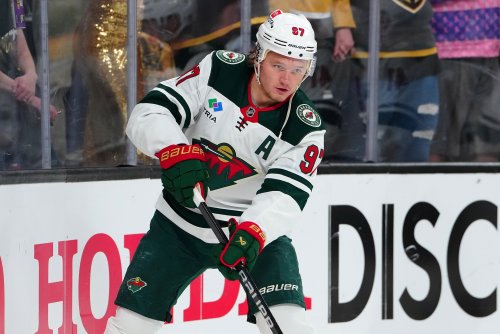
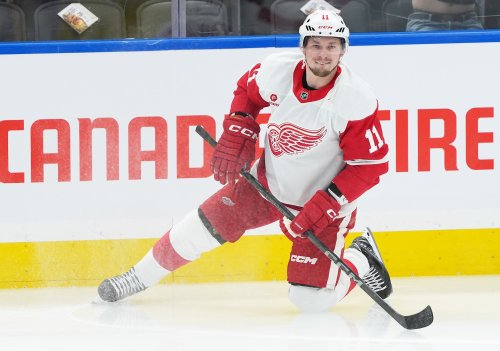

Recommended Comments
Join the conversation
You can post now and register later. If you have an account, sign in now to post with your account.
Note: Your post will require moderator approval before it will be visible.